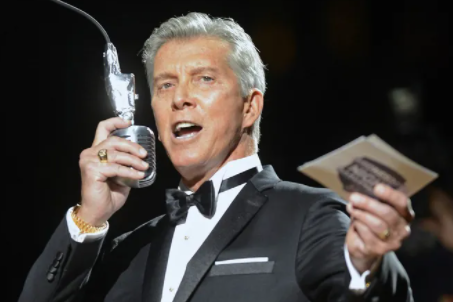Confronted: Dave Ramsey vs. Robert Kiyosaki
Two financial gurus, with very different approaches, to go head to head!
Two financial gurus with very different approaches to go head to head! Let’s take a look at who they are and how they approach money…
Dave Ramsey
One America’s most trusted voice on personal finance and famous for his motto:
“Live like no one else so later you can live like no one else”
Using the lessons he learned after filing for bankruptcy in the late 80’s, and subsequently rebuilding, he became an advocate for achieving financial freedom by living debt-free. A prolific writer, he’s written many books on everything from money management to business leadership, hosts a nationally syndicated radio program, and has amassed a loyal following of people who have used his investment strategies and debt elimination techniques to make their money work for them.
Perhaps most foundational to Ramsey’s financial principles are laid out in his “7 Baby Steps.” These are steps he says anyone, at any stage of life, can take to begin managing money the right way. Here they are:
1. Save $1,000 for an emergency fund.
2. Pay off all debt (except for the house)
3. Save 3-6 months’ worth of expenses in a fully funded emergency fund
4. Invest 15% of your household income in retirement.
5. Save for your children’s college fund.
6. Pay off your home early.
7. Build wealth and give.
Now let’s take explore the other guy! Robert Kiyosaki’s approach to debt, wealth-creation, and personal finance…
Kiyosaki, like Ramsey, experienced a tumultuous financial past after several failed businesses (including a wallet company for surfers and a heavy metal t-shirt certification company!) caused him to file for bankruptcy in the late 1980s.
He went on to rebuild through a series of real estate investments and has become a successful entrepreneur, motivational speaker, investor, and has authored over 26 books, including his most famous, the allegorical story titled “Rich Dad, Poor Dad”.
This book defines his unique approach to wealth creation as it chronicles Kiyosaki’s his own dad who abided by the tradition advice of:
Go to college—>Get a job—>Save Money—>Get out of Debt
And yet never achieves real financial success.
His approach encourages people to rethink this model to achieve “rich dad” status.
Before these two titans in the finance space go head-to-head, let point out a few similarities.
1. Both agree consumer debt is terrible. When speaking of debt below, I’m referring to debt taken on to procure cash flowing assets.
2. They respectfully agree to disagree. These two men are friends and ultimately want to empower and help. They are teachers at heart.
3. They are firm in their convictions and tend to not be swayed by public opinion. That’s worth pointing out as it’s becoming a rare trait.
Now without further ado [insert Michael Buffer], “Let’s Get Ready to Rumble!”
Debt is…
Dave Ramsey: Debt is the enemy, and the accumulation of debt creates enough risk to offset any advantage. He encourages people to avoid credit cards at all costs, to never to take more than a 15-year fixed-rate loan, and never have a payment of over 25% of your take-home pay.
To quote Ramsey, “Debt is not a tool; it is a method to make banks wealthy, not you. The borrower truly is slave to the lender.”
Robert Kiyosaki: The *right* debt can be an asset and can be used to earn more money in the long-term. Debt isn’t always bad—especially if you can increase cash-flow with debt, like rental properties, for example, it could be a smart investment!
Your home is…
Dave Ramsey: An asset…once it’s paid off. The mortgage is a liability which is why Ramsey encourages shorter term loans and modest mortgage payments. Ramsey thinks your home will make you more money than it will cost you over time.
Robert Kiyosaki: A liability. In Kiyosaki’s view, an asset pays you and a liability gets paid. Therefore, a cash flowing investment property is an asset and a primary residence with payments due is a liability.
Your Way to Building Wealth is…
Dave Ramsey: Working the “baby steps” outlined above. Work a steady job, eliminate debt, invest 15% into a mutual fund, pay off your house and then invest even more.
Robert Kiyosaki: Don’t pay taxes (legally). Use debt to:
- Accumulate cash flowing assets (or businesses)
- Reduce your tax burden by utilizing depreciation
Both approaches, while different, have the power to radically impact the average person’s knowledge of finance and wealth-creation. Which approach resonates most with you?


